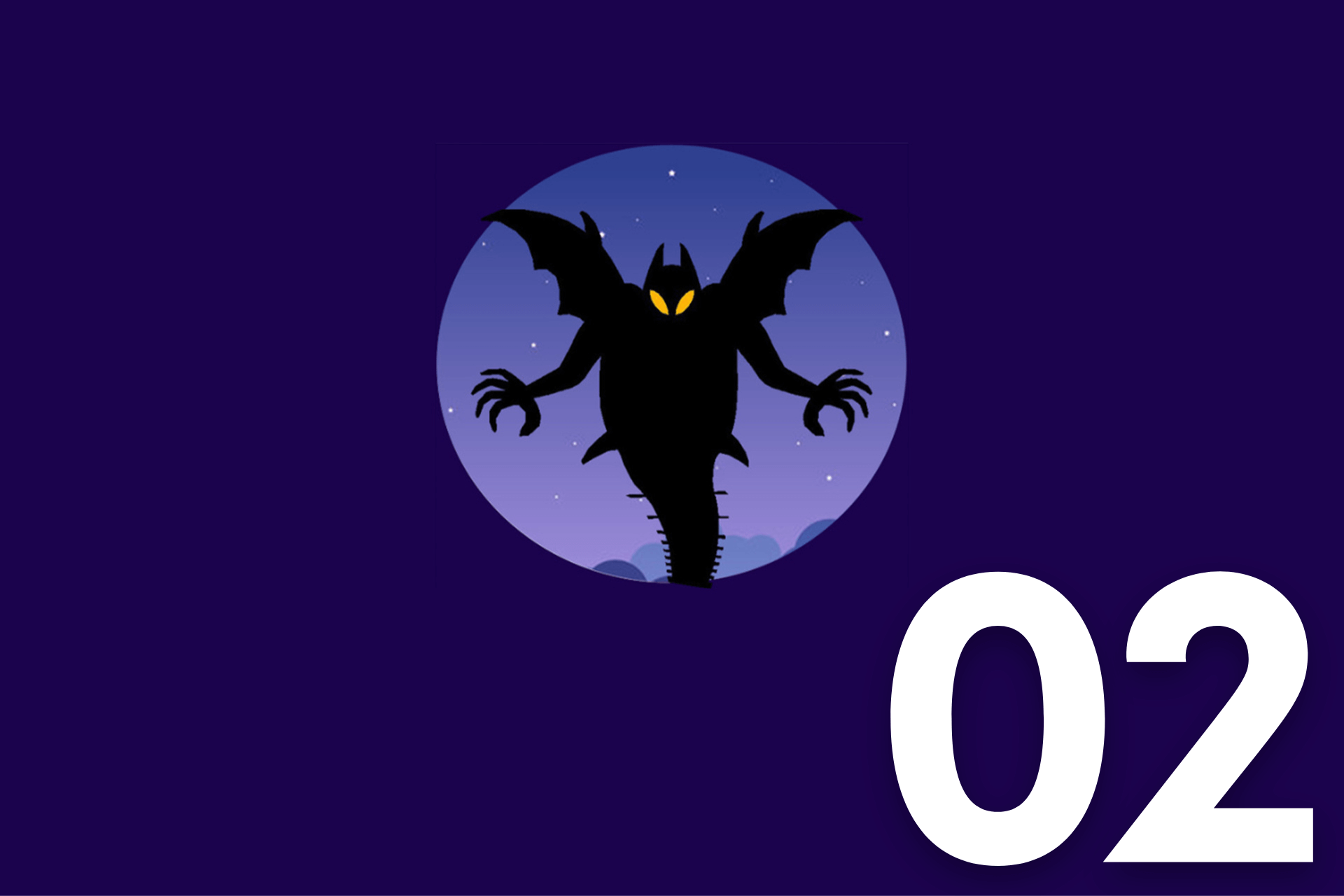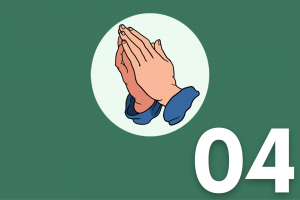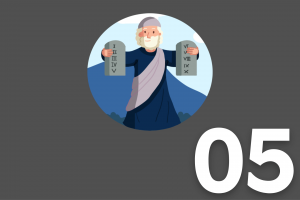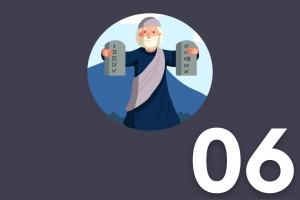Shabbat Shalom everyone! My name is Peter, it’s the 6th day of the 10th month, year 5782; or December 11th, 2021 and thanks for listening to the Our Heavenly Father podcast.
What is evil?
It is important to start our discussion by talking about what is evil.
God created the universe; a universe with rules of behavior; forces that are in perfect balance with each other. God also created humankind with rules of behavior; human beings must be in balance with each other; otherwise, there is hatred and violence. In this view, “evil” is therefore anything that works against God’s rules — evil is therefore, actions that bring chaos rather than order, destruction rather than creation, conflict rather than harmony, violence rather than peace and causes hurt rather than heals.
“Behold, how good and how pleasant it is For brethren to dwell together in unity!”
Psalms 133:1
If we consider that creation is a complex machine with countless movements and interactions; and that every movement has to be in balance with the rest for it to function correctly; then in that context we can understand that if we don’t function as designed, if we try to operate outside of the parameters of the system, then we are inherently working to disrupt the perfect balance of those movements, and the machine can ultimately cease to function. It is certainly evil to work against a perfect creation and to not respect the manual that we’ve been given; and in so doing, disrupting the harmony that God has created.
It is important to understand that evil is not a concept, an idea or a thing; it is actions that human beings choose to take, often rooted in self-seeking behavior, that cause harm. As such, a person cannot be inherently evil, but rather can choose to do evil.
I will briefly point out that Hebrew, the Divine language, is a concrete action-oriented language; not a language rooted in thoughts and ideas, but rather in actions.
What did God say about the worst generation that instigated the flood?
“And GOD saw that the wickedness of man was great in the earth, and that every imagination of the thoughts of his heart was only evil continually.”
Their thoughts were continually on doing evil, but God Himself did not call them “evil”.
“Depart from evil, and do good; Seek peace, and pursue it.” Psalms 34:14
This all tells us that a person cannot be evil, but that they can choose actions that are evil.
What is freewill?
Free Will is an equal ability to choose to do good or to do evil. If we were more inclined to do good, we would not have the free will to do evil; and as such, there must be a pull to do good (our conscience within us) and an opposite pull to do evil; to be drawn away by earthly desires.
Albert Bandura, who was the Professor in Psychology at Stanford University, in his paper Moral Disengagement in the Perpetration of Inhumanities (regarding moral justification), says:
“People do not ordinarily engage in harmful conduct until they have justified to themselves the morality of their actions. In this process of moral justification, detrimental conduct is made personally and socially acceptable by portraying it as serving socially worthy or moral purposes. People then can act on a moral imperative and preserve their view of themselves as a moral agent while inflicting harm on others.”
This shows that we have a strong pull towards good, so much so, that one has to justify harmful conduct as being good in order to carry it out. On the other side, the lustful and passionate desires are strong enough for one to spend the time and effort to justify those actions as good and moral.
Moses said,
“I call heaven and earth to witness against you this day, that I have set before you life and death, the blessing and the curse; therefore choose life, that you may live, you and your children” Deut 30:19
There are natural consequences to doing good and evil; consequences that, if respected, can lead to repentance and a change of behavior away from evil; but, continuing to do evil can only lead to death. That said, however, God does not want anyone to do evil and die.
“For I have no pleasure in the death of him that dies, says the Lord GOD; wherefore turn yourselves, and live.”
Ez 18:32
Why does evil exist?
If the ability to do evil did not exist, or even the inclination to do evil did not exist, then we would not have free will. For free will to exist, evil, therefore, must be allowed to exist; and by extension, the consequences of doing evil — pain and suffering. Adam and Eve were created with free will — this is evidenced by the existence of the tree of knowledge. Although we may not look at eating the fruit as an act of evil, that action disrupted God’s perfect plan, and the consequence of that disobedience, would be the loss of eternal life — it was an evil act. Having free will is a blessing and a curse; a blessing to those who trust in God and follow His instructions, thereby doing good, and a curse to those who do not, thereby doing evil. Adam and Eve did not trust God in the Garden and chose the curse which led to their eventual deaths; they did not trust that God’s instructions were good; that they were there to protect them; that God cared for them — instead they believed the lie that God was keeping something from them; some secret; and that they could only obtain true happiness from the fruit of the tree of the knowledge of good and evil. The lie in the Garden was that God was keeping them from becoming like gods, when they actually were already.
The fact that we were given Free Will also tells us a lot about our heavenly Father. Imagine how simple a thing it would have been to not have created a tree of knowledge in the garden; or he could have made the tree detestable — it could have looked and smelled disgusting, but instead, it was luscious to the eyes and something desirable to make one wise. How easy to create human beings without Free Will, that could not choose to do evil; that could not choose to disrupt God’s perfect creation and future plans. The fact that God created us with Free Will, truly shows His love for us — He allows us to become who we can become; he allows us to choose to trust in Him and follow Him, or to turn away from Him to choose to fulfill our own desires.
“Why, then, did God give them free will? Because free will, though it makes evil possible, is also the only thing that makes possible any love or goodness or joy worth having. A world of automata —of creatures that worked like machines—would hardly be worth creating. The happiness which God designs for His higher creatures is the happiness of being freely, voluntarily united to Him and to each other…. And for that they must be free. Of course, God knew what would happen if they used their freedom the wrong way: apparently He thought it worth the risk.”
C.S. Lewis
Why is evil allowed to continue?
God allows evil to continue because without it we would not have free will, but more importantly, because as human beings with the unique ability of self-awareness, we are able to see the hurt that our actions can cause, can change our direction, and in so doing, become better people. In other words, God allows it to continue so that one can repent; so that one has the opportunity to right their wrongs.
Cain was the first murderer. He killed his own brother with a stone which also became the instrument for capital punishment in the future. Why was Cain not executed for murdering his brother?
In most translations, Cain responds to God’s merciful judgment with
“My punishment is greater than I can bear.”
however, the translator note in the King James version of the Bible says,
“Or, my iniquity is greater than that it may be forgiven.”
This is quite curious because it shows two different points of view. Did Cain complain about the punishment, or did he say that his crime was too great to be forgiven? If the later, then it might better explain Cain not being executed (blood for blood after all), and Cain then being protected from being executed as a murderer by a sign from God. If Cain was truly repentant, then by being allowed to live, he would have a chance to make up for the evil that he committed.
Another very important consideration, is that if evil were not allowed to continue, how could one be judged righteously in a proper trial with witnesses testifying to those crimes. If someone were to commit a heinous crime, such as the extermination of an entire race, for example; and God stopped them before they completed that crime… how could that person be properly judged and punished? At a trial before witnesses, would God just have to say, they were going to kill millions, but I stopped them before they killed even 100?
Is our Righteous Judge someone who would just condemn someone without evidence, solely by His word alone? What evidence do we have that God doesn’t just condemn based on His knowing all things? By the constant testing throughout our lives. The Bible shows that throughout history God has tested people.
“And you shall remember all the way which the LORD your God has led you these forty years in the wilderness, that He might afflict you, to prove you, to know what was in your heart, whether thou would keep His commandments, or not.”
Does God not know what is in your heart or mind? He knows all things, so the only reason that God would test us, is to prove to others what was in our heart, which then shows through our actions in response to our testing. This is solely for the purpose of being able to have a fair trial where witnesses give testimony, and not where God just says one is innocent or guilty because he is omniscient. A righteous judge cannot judge without evidence; without testimonies having been given.
So, to sum up, evil must be allowed to continue in order that a person has the opportunity to turn away from evil towards God; and, in order to have a fair and equitable trial where all the evil that has been committed is laid bare and a righteous judgment can be pronounced.
If free will exists, how can God then also be in control?
God existed before time and space came into being; before there was matter and a universe. God brought our reality into existence, and being outside of this reality of existence, means that there is nothing lacking in His knowledge about the universe, and there is nothing lacking in His power over it. He created every atom in existence, which means every atom is under His power. God can see every possible action we could take and has a perfect plan in place for every action — even the ones He knows we will not take. If God were to only plan for one possible action that we took, then this would be making plans based on predetermining a person’s decision, which would go against Free Will — for God to completely respect our Free Will means that he must have a plan for every possible action.
This ultimately means that no matter how much evil one person may do, that God has a plan to ensure the best outcome for everyone, and in this way, God can be completely sovereign, and yet, Free Will can exist all at the same time.
Why does God then, even though He does know, behave as if another outcome were possible, as if He doesn’t know? Because He loves us so much that He doesn’t give up on us — even knowing the ultimate outcome, He is still waiting for us to turn to him and will always forgive us when we return — he leaves the door open for reconciliation until our last breath.
In the end, no matter how one may try to do evil, no matter how one uses their Free Will, God has a plan to use those actions for good. God is ultimately sovereign; ultimately in control; and will ultimately hold everyone accountable for their actions.
Who is responsible for the evil that’s occurring?
God gave us dominion, autonomy and responsibility.
“And let them have dominion over the fish of the sea, and over the fowl of the air, and over the cattle, and over all the earth, and over every creeping thing that creepeth upon the earth.”
Gen 1:26
God created everything for us. God gave us the responsibility to care for his creation.
“And the LORD God took the man, and put him into the garden of Eden to dress it and to keep it.”
Gen 2:15
The responsibility for God’s creation is on us. The responsibility to care for all life on earth is on us. The consequences of inaction also fall on us. When others are suffering it is on us to help them, and if we don’t, we will be held accountable; not God.
We hold sovereignty and responsibility on earth and we need to make good free will choices to do what is right for all, according to the instructions that God the Creator has handed down to us — ultimately, there is no fall guy, there is no devil to blame or a creator, there is just us.
We must understand that with free will comes responsibility. We must do what God has instructed for the betterment of all life and to honor the love that God has shown us in giving us all of creation.
What about those who have suffered?
The only way that those who have suffered could be compensated is in a new world to come, in which those who have died are resurrected. The only way to balance out all of the evil that has been committed in this world would be in a world to come where the afflicted can be rewarded, not just by resurrection, but by also being exalted in this new world, where those who were lowly are no longer so, and the ones who committed evil are not included.
God cares about all those who have had to suffer in poverty, oppression or starvation; and God will right all the wrongs in a new world; a world without pain, without suffering, without fear or violence. A perfect world in which we will all be free and will truly know and love our Heavenly Father.
In summary then, God created us as free will creatures with sovereignty over His creation because He loves us. As free will creatures, we must have the choice to do good or evil, or we would not have free will. He gave us the responsibility to care for all of creation so that it would not come to harm and evil is solely the action to cause harm and destruction. All those who have committed evil will be judged and punished accordingly; and all those who have suffered harm will be rewarded in the world to come.
This has been the Our Heavenly Father podcast.
If you enjoyed this episode, don’t forget to subscribe! And if you want to help spread the good news, please invite your friends to subscribe too.
If you have any questions or comments, please feel free to e-mail me at peter@our-heavenly-father.com.
Thanks again for listening and I hope you’ll be back for our next podcast, The Bible.
Peace to you, and peace to your house, and peace to all that you have!
Amen







